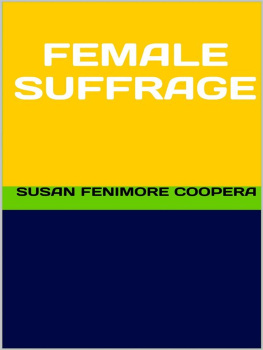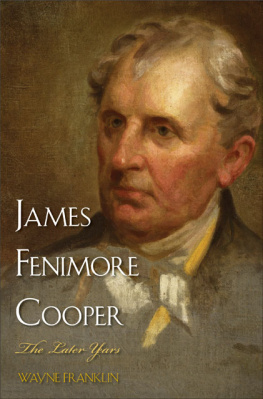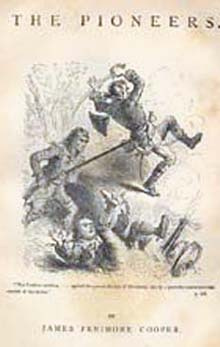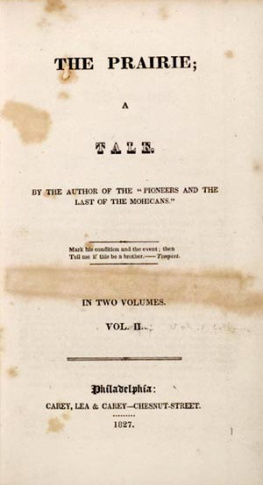Susan Fenimore Cooper
(This e-text has been prepared from the original two-part magazine article, "Female Suffrage: A Letter to the Christian Women of America," by Susan Fenimore Cooper, which appeared in Harper's New Weekly Magazine, Vol. XLI (June-November, 1870), pp. 438-446, 594-600. The author is identified only in the Table of Contents, p. v, where she is listed as "Susan F. Cooper."
Transcribed by Hugh C. MacDougall jfcooper@wpe.com
{Because "vanilla text" does not permit of accents or italics, accents have been ignored, and both all-capital and italicized words transcribed as ALL CAPITALS. Paragraphs are separated by a blank line, but not indented. Footnotes by Susan Fenimore Cooper are inserted as paragraphs (duly identified) as indicated by her asterisks. All insertions by the transcriber are enclosed in {brackets}. For readers wishing to know the exact location of specific passages, the page breaks from Harper's are identified by a blank line at the end of each page, followed by the original page number at the beginning of the next.
{A Brief Introduction to Susan Fenimore Cooper's article:
{The question of "female suffrage" has long been resolved in the United States, andthough sometimes more recentlyin other democratic societies as well. For most people, certainly in the so-called Western world, the right of women to vote on a basis of equality with men seems obvious. A century ago this was not the case, even in America, and it required a long, arduous, and sometimes painful struggle before the Nineteenth Amendment to the United States Constitution was ratified on August 18, 1920.
{Why then, take steps to make available through the Gutenberg Project an article arguing AGAINST the right of women to votean article written by a woman?
{There are two reasons for doing so. The first is that Susan Fenimore Cooper (1813-1894) was no ordinary woman. She was educated in Europe and extremely well read; she was the daughter and literary assistant of James Fenimore Cooper, America's first internationally recognized novelist; and she was a naturalist and essayist of great talent whose "nature diary" of her home village at Cooperstown, published as "Rural Hours" in 1850, has become a classic of early American environmental literature.
{Yet Susan Fenimore Cooper argued eloquently, bringing to her task not only her deep religious feelings but also her very considerable knowledge of world history and of American society, that women should not be given the vote! Hers was not a simple defense of male dominion; her case is combined with equally eloquent arguments in favor of higher education for women, and for equal wages for equal work. "Female Suffrage," is thus of considerable biographic importance, throwing important light on her views of God, of society, and of American culture.
{At the same time, "Female Suffrage" demonstrates that no social argumenthowever popular or politically correct todaycan be considered as self-evident. Those who favor full legal and social equality of the sexes at the ballot box and elsewhere (as I believe I do), should be prepared to examine and answer Susan Fenimore Cooper's arguments to the contrary. Many of those arguments are still heard daily in the press and on TV talk showsnot indeed to end women's right to vote, but as arguments against further steps towards gender equality. Unlike many modern commentators, Susan Fenimore Cooper examines these arguments in detail, both as to their roots and their possible effects, rather than expressing them as simplistic sound-bites. She asks her readers to examine whether gender equality is compatible with Christian teachings; whether universal suffrage can ever resolve social problems; whether the "political" sphere is as significant to human life as politicians believe. One need not agree with her answers, but one can only be grateful that she forces us to ask questions.
{Hugh C. MacDougall, Secretary, James Fenimore Cooper SocietyAugust 1999}
FEMALE SUFFRAGE.
A LETTER TO THE CHRISTIAN WOMEN OF AMERICA.
Part I.
{Publisher's Note} [NOTE.We have printed this Letter, which will be continued in our next Number, not as an expression of our own views, but simply as the plea of an earnest and thoughtful Christian woman addressed to her fellow-countrywomen.EDITOR OF HARPER.]
The natural position of woman is clearly, to a limited degree, a subordinate one. Such it has always been throughout the world, in all ages, and in many widely different conditions of society. There are three conclusive reasons why we should expect it to continue so for the future.
FIRST. Woman in natural physical strength is so greatly inferior to man that she is entirely in his power, quite incapable of self-defense, trusting to his generosity for protection. In savage life this great superiority of physical strength makes man the absolute master, woman the abject slave. And, although every successive step in civilisation lessens the distance between the sexes, and renders the situation of woman safer and easier, still, in no state of society, however highly cultivated, has perfect equality yet existed. This difference in physical strength must, in itself, always prevent such perfect equality, since woman is compelled every day of her life to appeal to man for protection, and for support.
SECONDLY. Woman is also, though in a very much less degree, inferior to man in intellect. The difference in this particular may very probably be only a consequence of greater physical strength, giving greater power of endurance and increase of force to the intellectual faculty connected with it. In many cases, as between the best individual minds of both sexes, the difference is no doubt very slight. There have been women of a very high order of genius; there have been very many women of great talent; and, as regards what is commonly called cleverness, a general quickness and clearness of mind within limited bounds, the number of clever women may possibly have been even larger than that of clever men. But, taking the one infallible rule for our guide, judging of the tree by its fruits, we are met by the fact that the greatest achievements of the race in every field of intellectual culture have been the work of man. It is true that the advantages of intellectual education have been, until recently, very generally on the side of man; had those advantages been always equal, women would no doubt have had much more of success to record. But this same fact of inferiority of education becomes in itself one proof of the existence of a certain degree of mental inequality. What has been the cause of this inferiority of education? Why has not woman educated herself in past ages, as man has done? Is it the opposition of man, and the power which physical strength gives him, which have been the impediments? Had these been the only obstacles, and had that general and entire equality of intellect existed between the sexes, which we find proclaimed to-day by some writers, and by many talkers, the genius of women would have opened a road through these and all other difficulties much more frequently than it has yet done. At this very hour, instead of defending the intellect of women, just half our writing and talking would be required to defend the intellect of men. But, so long as woman, as a sex, has not provided for herself the same advanced intellectual education to the same extent as men, and so long as inferiority of intellect in man has never yet in thousands of years been gravely discussed, while the inferiority of intellect in woman has been during the same period generally admitted, we are compelled to believe there is some foundation for this last opinion. The extent of this difference, the interval that exists between the sexes, the precise degree of inferiority on the part of women, will probably never be satisfactorily proved.






